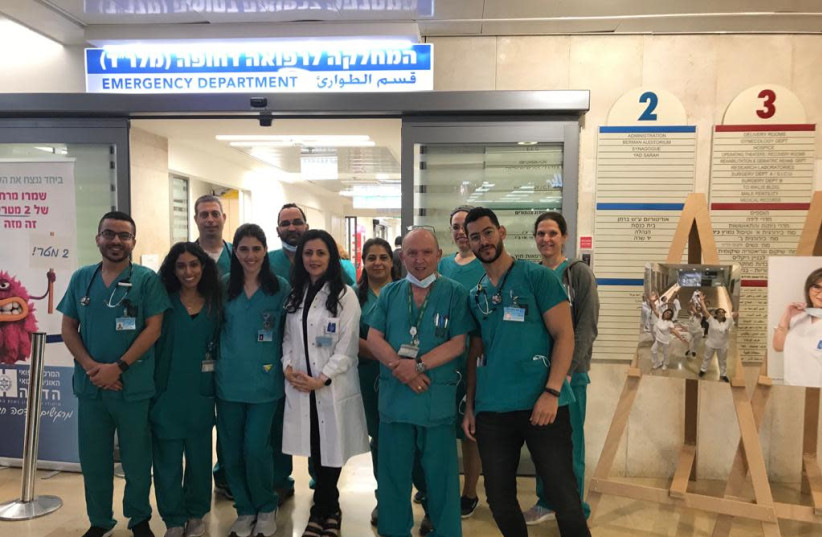Year after year, medical schools around Israel and in many places around the world admit an overrepresentation of students with a high socio-economic background. Now, a new program at Tel Aviv University (TAU) will try to advance underrepresented students by increasing the ratio of admitted students from low socio-economic backgrounds to 10% of each class.
One out of 10 admitted to the first year in the six-year track will come from four underrepresented groups – ultra-Orthodox Jews (Haredim), Jews of Ethiopian background, outstanding students from the social and geographic peripheries, and individuals with high potential.
“medicine is above all a social profession. We take care of people's physical, emotional, and social needs. Israel is a multicultural society, and to provide personalized care, medical teams must be familiar with the entire spectrum of Israeli society.”
Professor Karen Avraham, dean of the faculty, TAU
In the coming academic year, this will mean 12 students, three from each group, with any unfilled spots offered to candidates from the other groups. In addition, these applicants will enjoy adapted requirements and admission tests – especially in non-cognitive tests and personality assessments.
The decision to launch the affirmative-action program was made jointly by TAU’s Faculty of Medicine, the registration unit, the dean of student services, and its Equity, Diversity & Community Commission.
Faculty of Medicine officials explained that even though adaptations for special populations have been made in the past, the quota was smaller (eight students, two from each group per year), and even this usually remained unfilled – partly because no mobility was allowed among the different groups. In addition, the customary admission tests posed a substantial barrier for many of these candidates. Now it is hoped that with the new adaptations, all quotas will be filled, promoting social diversity in the medical school.

Prof. Ido Wolf, dean of the school of medicine explained that “to remove any doubt, it must be emphasized that all candidates admitted to the school must meet all academic requirements. Adaptations will be made only in non-cognitive national tests, in which we have found that individuals from these groups have lower chances for success. We have no doubt that these candidates can and will do well in their studies and become excellent physicians, as expected from all alumni of TAU's School of Medicine."
Medicine must reflect the community it serves
Prof. Karen Avraham, dean of the faculty, added that “medicine is above all a social profession. We take care of people's physical, emotional, and social needs. Israel is a multicultural society, and to provide personalized care, medical teams must be familiar with the entire spectrum of Israeli society.”
Prof. Neta Ziv, the vice president for equity, diversity, and community, concluded that she was “very happy about this new effort to increase the number of medical students from underrepresented groups. Excellent candidates admitted to the School of Medicine will eventually enhance diversity in the medical profession. With the 2023/24 academic year coming up, TAU is making great efforts to admit more students from Israel’s social and geographic peripheries, the Ethiopian-Israeli community, and the Haredi education system as part of its commitment to academic excellence coupled with equal opportunity.”
